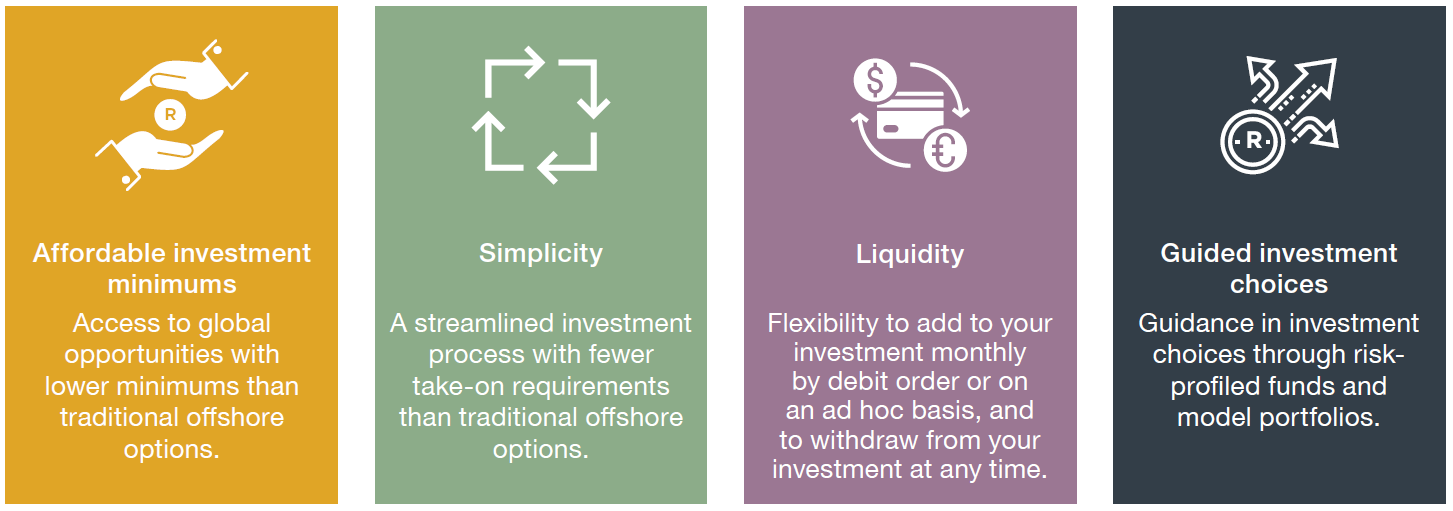Discovering Just How Spending Off Coast Functions: A Comprehensive Guide
Investing offshore provides a complex landscape of obstacles and possibilities. Comprehending the numerous types of overseas accounts is vital for any individual considering this course. The benefits, including boosted privacy and property defense, are significant. However, lawful and tax obligation implications warrant mindful interest. As investors seek to optimize their profiles, the actions to develop a sensible overseas investment strategy come to be necessary. What are the vital elements that must browse to do well in this venture?
Recognizing Offshore Accounts and Their Kinds
What drives individuals and organizations to consider offshore accounts? The attraction of monetary personal privacy, possession protection, and possible tax benefits commonly draws in the focus of those looking for to manage their wealth a lot more purposefully. Offshore accounts, usually developed in international territories, come in numerous forms. Personal accounts accommodate specific demands, supplying solutions like financial savings, financial investment, or retirement preparation. Service accounts, on the various other hand, serve business seeking to facilitate worldwide purchases, boost personal privacy, or optimize tax responsibilities. Trust fund accounts provide an added layer of defense, permitting individuals to secure their possessions for future beneficiaries. Each sort of offshore account presents distinct attributes, commonly affected by the governing atmosphere of the host nation. Comprehending these differences is important for organizations and people, as the selection of account type can notably influence their financial methods and compliance with international regulations.
Advantages of Offshore Spending
While many capitalists look for possibilities to expand their portfolios, offshore spending presents distinctive advantages that can enhance monetary growth and safety. One remarkable advantage is the possibility for asset protection. Offshore accounts can protect financial investments from political instability or financial downturns in the investor's home nation. Furthermore, offshore investments usually offer access to global markets, permitting capitalists to take advantage of arising economic climates and sectors that might not be offered domestically.Another significant advantage is tax obligation effectiveness. Many offshore jurisdictions supply desirable tax regimens, which can lessen tax responsibilities and enhance general returns. Offshore investing can improve privacy, as particular territories apply stringent discretion laws.Lastly, offshore accounts can help with riches administration approaches by providing a broader range of financial investment alternatives, including different assets such as real estate and commodities. Collectively, these advantages make offshore spending an appealing selection for those seeking to reinforce their economic profiles.

Lawful and Regulatory Factors to consider
Guiding with the regulative and legal landscape of overseas investing needs cautious interest and understanding. Investing Off Shore. Capitalists have to navigate a complicated web of regulations that vary significantly from one jurisdiction to one more. Compliance with local regulations is important; failing to do so can cause serious fines, you could try here including fines and jail time. In addition, knowing the lawful structures regulating foreign investments is important for assuring the defense of possessions and keeping functional legitimacy.Key considerations consist of understanding the regulatory needs for developing offshore entities, such as depends on or companies, and adhering to anti-money laundering (AML) and know-your-customer (KYC) guidelines. Capitalists should likewise know reporting commitments in their home country, as several countries require disclosure of overseas holdings. Engaging with attorneys experienced in overseas financial investment can supply indispensable support, helping capitalists to minimize dangers and safe and secure conformity with appropriate legislations and guidelines while optimizing their financial investment potential

Tax Obligation Ramifications of Offshore Investments
Comprehending the regulatory and legal factors to consider of overseas investing normally results in an assessment of the tax obligation implications linked with these investments. Offshore financial investments can supply substantial tax advantages, consisting of lowered tax obligation rates and the potential for tax obligation deferral. Nonetheless, capitalists need to browse complex tax guidelines in their home nations, as several territories call for taxpayers to report foreign earnings and assets.For united state residents, the Foreign Account Tax Obligation Compliance Act (FATCA) mandates the coverage of overseas accounts, while other nations have similar requirements. Failing to abide can lead to serious charges. Furthermore, specific offshore funds might be subject to distinct tax obligation treatments, such as Passive Foreign Financial Investment Business (PFIC) regulations, making complex investment strategies.Investors ought to take into consideration seeking advice from tax obligation experts to comprehend effects particular to their scenarios and assurance compliance with both domestic and global tax obligation regulations, ultimately taking full advantage of the benefits of their overseas investments while decreasing dangers.
Steps to Get Going With Offshore Investing
Lots of capitalists seeking to expand their portfolios transform to offshore investing as a sensible option. To start, one have to carry out comprehensive research study on potential offshore territories, taking into consideration elements such as regulatory setting, taxation, and financial investment opportunities. Investing Off Shore. After choosing a suitable place, financiers need to establish an offshore account, which generally needs documents verifying identification and resource of funds.Next, capitalists commonly involve with an overseas financial investment or an economic advisor firm familiar with regional laws and market dynamics. This collaboration can aid in crafting a customized investment technique that straightens with individual goals and run the risk of tolerance.Once the technique remains in place, financiers can proceed to choose particular properties or funds for investment, ensuring they evaluate performance and runs the risk of regularly. Maintaining conformity with both neighborhood and home nation regulations is vital for successful overseas investing, needing continuous persistance and potentially regular examinations with legal specialists.

Regularly Asked Questions
Exactly how Do I Pick the Right Offshore Territory?
Selecting the appropriate overseas territory involves examining variables such as regulatory environment, tax benefits, political stability, and ease look here of operating. Researching each option completely assures educated choices that line up with private investment objectives and take the chance of resistance.
What Kinds Of Assets Can I Hold Offshore?

Exist Threats Linked With Offshore Spending?
The threats connected with overseas investing consist of lawful complexities, regulatory changes, currency fluctuations, and potential political instability. Capitalists have to carefully assess these factors to alleviate dangers and warranty conformity with global legislations and laws.
Exactly How Can I Access My Offshore Finances?
To accessibility overseas funds, individuals typically require to call their banks, offer necessary recognition and documentation, and comply with well established protocols for fund transfers, making sure compliance with both international and regional regulations regulating offshore investments.
What Prevail False Impressions Regarding Offshore Accounts?
Typical false impressions about offshore accounts include ideas that they are exclusively for tax evasion, absence of regulation, or obtainable to the rich. In reality, they can be legitimate economic devices for varied individuals. Furthermore, overseas investments commonly give accessibility to international markets, allowing investors to touch right into arising economic climates and industries that may not be offered domestically.Another substantial you can look here advantage is tax obligation effectiveness. Offshore investing can boost privacy, as specific jurisdictions apply strict discretion laws.Lastly, offshore accounts can assist in wide range monitoring methods by providing a bigger range of investment alternatives, including alternative possessions such as genuine estate and commodities. Recognizing the lawful and governing factors to consider of overseas investing normally leads to an evaluation of the tax obligation effects connected with these investments. Offshore investments can offer substantial tax obligation benefits, consisting of lowered tax obligation prices and the capacity for tax deferral. After picking an ideal area, financiers should establish an offshore account, which generally calls for documents proving identity and resource of funds.Next, financiers commonly engage with a financial consultant or an offshore investment company familiar with regional regulations and market characteristics.